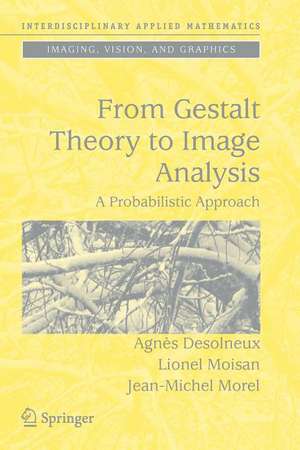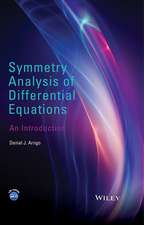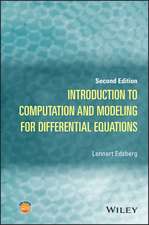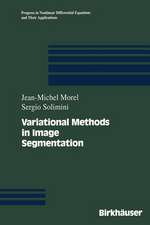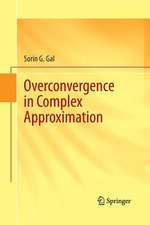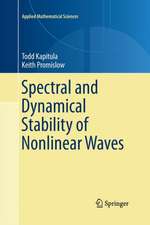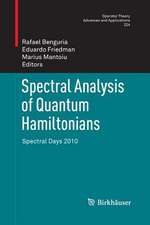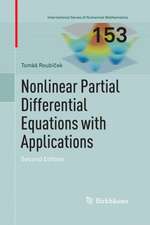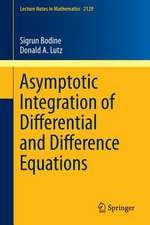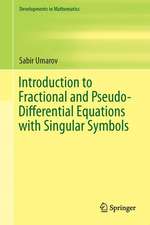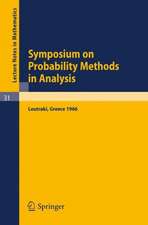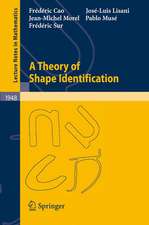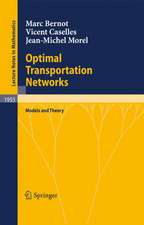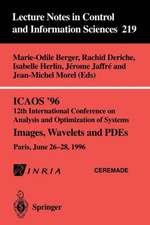From Gestalt Theory to Image Analysis: A Probabilistic Approach: Interdisciplinary Applied Mathematics, cartea 34
Autor Agnès Desolneux, Lionel Moisan, Jean-Michel Morelen Limba Engleză Paperback – 25 noi 2010
| Toate formatele și edițiile | Preț | Express |
|---|---|---|
| Paperback (1) | 332.06 lei 6-8 săpt. | |
| Springer – 25 noi 2010 | 332.06 lei 6-8 săpt. | |
| Hardback (1) | 336.02 lei 6-8 săpt. | |
| Springer – 18 dec 2007 | 336.02 lei 6-8 săpt. |
Din seria Interdisciplinary Applied Mathematics
- 15%
 Preț: 667.05 lei
Preț: 667.05 lei - 15%
 Preț: 484.95 lei
Preț: 484.95 lei - 20%
 Preț: 664.77 lei
Preț: 664.77 lei - 15%
 Preț: 980.97 lei
Preț: 980.97 lei - 17%
 Preț: 528.44 lei
Preț: 528.44 lei - 18%
 Preț: 908.71 lei
Preț: 908.71 lei - 18%
 Preț: 1011.77 lei
Preț: 1011.77 lei - 15%
 Preț: 659.67 lei
Preț: 659.67 lei -
 Preț: 498.14 lei
Preț: 498.14 lei -
 Preț: 528.35 lei
Preț: 528.35 lei - 15%
 Preț: 659.02 lei
Preț: 659.02 lei - 15%
 Preț: 480.52 lei
Preț: 480.52 lei -
 Preț: 390.63 lei
Preț: 390.63 lei - 18%
 Preț: 918.61 lei
Preț: 918.61 lei -
 Preț: 388.52 lei
Preț: 388.52 lei - 15%
 Preț: 647.92 lei
Preț: 647.92 lei - 15%
 Preț: 655.60 lei
Preț: 655.60 lei - 23%
 Preț: 734.80 lei
Preț: 734.80 lei - 15%
 Preț: 660.83 lei
Preț: 660.83 lei - 18%
 Preț: 967.08 lei
Preț: 967.08 lei -
 Preț: 809.10 lei
Preț: 809.10 lei -
 Preț: 403.91 lei
Preț: 403.91 lei - 18%
 Preț: 896.84 lei
Preț: 896.84 lei - 18%
 Preț: 1004.00 lei
Preț: 1004.00 lei - 18%
 Preț: 974.19 lei
Preț: 974.19 lei -
 Preț: 399.67 lei
Preț: 399.67 lei - 18%
 Preț: 1181.99 lei
Preț: 1181.99 lei
Preț: 332.06 lei
Preț vechi: 415.08 lei
-20% Nou
Puncte Express: 498
Preț estimativ în valută:
63.55€ • 65.97$ • 52.99£
63.55€ • 65.97$ • 52.99£
Carte tipărită la comandă
Livrare economică 22 martie-05 aprilie
Preluare comenzi: 021 569.72.76
Specificații
ISBN-13: 9781441924810
ISBN-10: 1441924817
Pagini: 288
Ilustrații: XII, 276 p. 130 illus.
Dimensiuni: 155 x 235 x 15 mm
Greutate: 0.41 kg
Ediția:Softcover reprint of hardcover 1st ed. 2008
Editura: Springer
Colecția Springer
Seria Interdisciplinary Applied Mathematics
Locul publicării:New York, NY, United States
ISBN-10: 1441924817
Pagini: 288
Ilustrații: XII, 276 p. 130 illus.
Dimensiuni: 155 x 235 x 15 mm
Greutate: 0.41 kg
Ediția:Softcover reprint of hardcover 1st ed. 2008
Editura: Springer
Colecția Springer
Seria Interdisciplinary Applied Mathematics
Locul publicării:New York, NY, United States
Public țintă
ResearchCuprins
Gestalt Theory.- The Helmholtz Principle.- Estimating the Binomial Tail.- Alignments in Digital Images.- Maximal Meaningfulness and the Exclusion Principle.- Modes of a Histogram.- Vanishing Points.- Contrasted Boundaries.- Variational or Meaningful Boundaries?.- Clusters.- Binocular Grouping.- A Psychophysical Study of the Helmholtz Principle.- Back to the Gestalt Programme.- Other Theories, Discussion.
Recenzii
From the reviews:
"This book tells the story of how to construct objects form images, in a way closely related to human perception. ... contains many illustrations and images that are analyzed, from various fields of applied science. ... References in the end, however, are helpful for further reading. ... To summarize, the book is a fine and timely introduction to a fascinating field of science. I can certainly recommend its reading to anyone dealing in a probabilistic sense with images ... ." (A. Stein, Kwantitatieve Methoden, Issue R09, 2008)
“This book is focused on Gestalt theory and image processing using probabilistic approaches. … carefully written with exercise problems in each chapter and can be used directly as a textbook on the topic. … This book is clearly written and relatively easy to read. The topics and directions are well thought out and can be used as a textbook for a graduate-level course on the topic. It is an interesting book on Gestalt theory and a good introduction to the meaningful events and related topics.” (Sung Ha Kang, SIAM Review, Vol. 52 (2), 2010)
"This book tells the story of how to construct objects form images, in a way closely related to human perception. ... contains many illustrations and images that are analyzed, from various fields of applied science. ... References in the end, however, are helpful for further reading. ... To summarize, the book is a fine and timely introduction to a fascinating field of science. I can certainly recommend its reading to anyone dealing in a probabilistic sense with images ... ." (A. Stein, Kwantitatieve Methoden, Issue R09, 2008)
“This book is focused on Gestalt theory and image processing using probabilistic approaches. … carefully written with exercise problems in each chapter and can be used directly as a textbook on the topic. … This book is clearly written and relatively easy to read. The topics and directions are well thought out and can be used as a textbook for a graduate-level course on the topic. It is an interesting book on Gestalt theory and a good introduction to the meaningful events and related topics.” (Sung Ha Kang, SIAM Review, Vol. 52 (2), 2010)
Textul de pe ultima copertă
This book introduces the reader to a recent theory in Computer Vision yielding elementary techniques to analyse digital images. These techniques are inspired from and are a mathematical formalization of the Gestalt theory. Gestalt theory, which had never been formalized is a rigorous realm of vision psychology developped between 1923 and 1975.
From the mathematical viewpoint the closest field to it is stochastic geometry, involving basic probability and statistics, in the context of image analysis.
The book is intended for a multidisciplinary audience of researchers and engineers. It is self contained in three aspects: mathematics, vision and algorithms, and requires only a background of elementary calculus and probability. A large number of illustrations, exercises and examples are included. The authors maintain a public software, MegaWave, containing implementations of most of the image analysis techniques developed in the book.
From the mathematical viewpoint the closest field to it is stochastic geometry, involving basic probability and statistics, in the context of image analysis.
The book is intended for a multidisciplinary audience of researchers and engineers. It is self contained in three aspects: mathematics, vision and algorithms, and requires only a background of elementary calculus and probability. A large number of illustrations, exercises and examples are included. The authors maintain a public software, MegaWave, containing implementations of most of the image analysis techniques developed in the book.
Caracteristici
Over 130 illustrations throughout the text Detailed exercises at the end of each chapter Large number of examples, of specific images on which the theory is tested are included Includes supplementary material: sn.pub/extras
